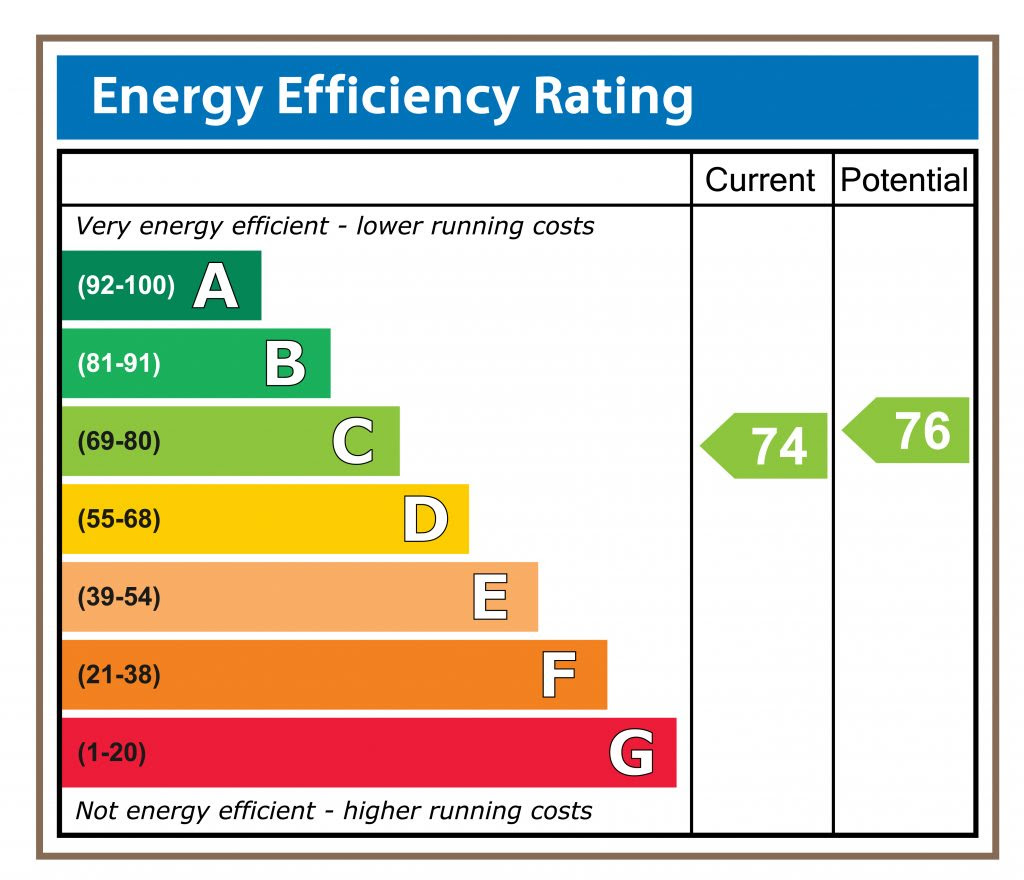How Can I Improve My EPC Rating?
Most UK properties have an average rating of D or E. If your property’s energy efficiency falls short of rental sector requirements, there are things you can do to improve it:
Fitting a new boiler – replacing your boiler with a modern energy-efficient model will impact your EPC rating most. You could also consider adding a renewable energy source in the form of solar panels, biomass boilers and ground-source heat pumps. Installing double or triple glazing – upgrading your windows and doors could improve your energy rating and reduce noise pollution. Upgrading roof insulation – a quarter of household heat is lost through the roof, so upgrading your roof insulation is an easy way to improve the energy efficiency of your property. Adding wall insulation – whether your home has cavity or solid walls, insulating them can improve your EPC rating. Replacing lighting – using energy-efficient light bulbs is a cheap and easy way to improve your rating.

Is It Still Worth Improving My EPC Rating?
If you’re concerned about meeting the EPC C rating, you may be relieved that the rule change has been scrapped. Yet it may be worth improving your property’s EPC rating anyway – here are some reasons landlords may want to consider it.
EPC changes will likely be back on the table in the future, as ultimately, the nation has committed to becoming more energy efficient. If (or when) new rules do come in, you’ll beat the rush to secure materials and tradesmen. Warm, dry homes are less likely to develop damp and mould problems, saving you the cost of remedial work. Tenants value an energy-efficient property, so a good rating will make your property more attractive and competitive. Energy-efficient properties attract lower energy bills. For landlords who rent out properties with bills included, this can reduce your costs. A better EPC rating can attract a higher selling price. On average, B and C-rated homes sell for 5% more than D-rated properties. If you decide to sell your rental property, you could benefit.
Do I Need My Tenant’s Permission For The EPC Inspection?
Yes, you must always give your tenant 24 hours’ written notice before carrying out an EPC inspection. You don’t need to renew your property’s EPC during a tenancy unless you change the tenancy agreement. However, you may choose to get one following work on the property to achieve a better score, or in preparation for a new tenancy.
Should I Give My Tenants A Copy Of The EPC?
You are legally required to give your tenants a copy of the EPC.
How Do I Get An EPC?
EPCs are issued after an inspection by an accredited energy surveyor. Conducting an internal and external review of most domestic properties takes less than an hour. During the survey, the energy assessor will evaluate the following aspects of your property:
- Exterior walls
- Roof insulation
- Floor
- Windows
- Open fireplaces
- Boiler
- Lighting
- Heating system
- Heating controls
- Hot water cylinder insulation
- Ventilation system
- Conservatory and extensions
You will need to ensure the surveyor can access all the rooms in your property, including the loft.
How Much Does An EPC Cost?
EPCs cost between £90 and £120. It’s worth getting quotes before choosing an assessor to conduct the survey.
When Will I Need To Renew My EPC?
An EPC is valid for 10 years. Once it has expired, you must apply for a new EPC to continue renting the property out.
If you have carried out renovation work on the property, which you think may have improved its energy efficiency, you may choose to get a new certificate.
Are Any Properties Exempt?
Under UK law, all private rental properties must have an EPC certificate. However, there are a few exceptions to this rule:
- Listed buildings
- Residential buildings used for less than 4 months each year
- Buildings scheduled for demolition
- Buildings intended to be used for less than 2 years
- Stand-alone buildings with less than 50 square metres of useful floor space
Landlords can seek exemption by submitting evidence to the National Private Rented Sector (PRS) Exemptions Register.